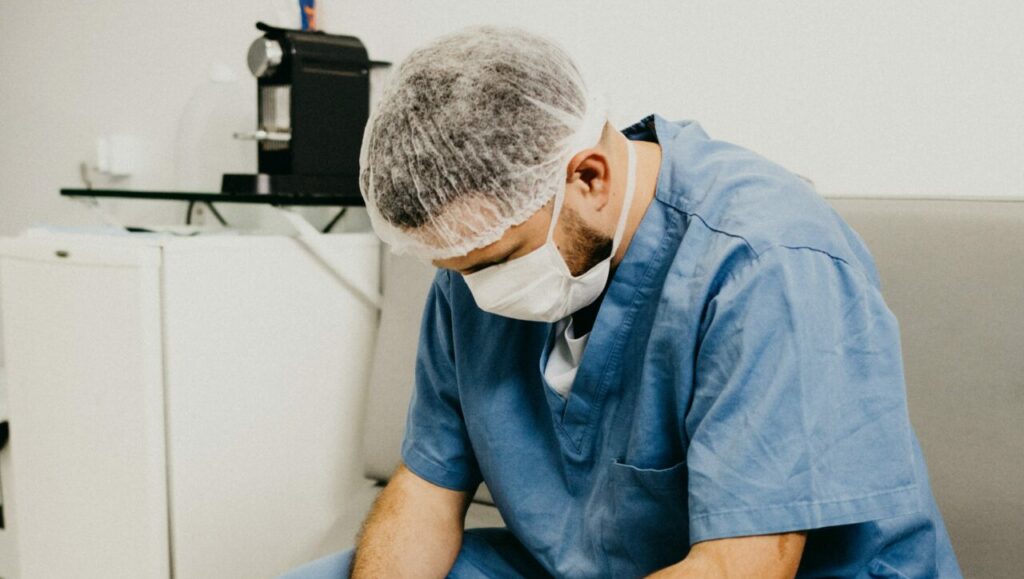Most LGBTQ medics aren’t comfortable being open at work, report finds
The British Medical Association's study was conducted to find out the experiences of LGBTQ staff.

A new report from the British Medical Association (BMA) has found that most LGBTQ medics aren’t comfortable being open about their sexual orientation or gender identity at work.
The study was conducted to find out the experiences of LGBTQ staff, how inclusive workplaces are, and to get a sense of the impacts of phobias.
The BMA says that 46 percent of Lesbian, Gay, Bisexual, and Queer (LGBQ+) medical professionals say they’re open at work and only 34 percent of trans respondents are open with everyone at work or in their studies.
Among the report’s other findings are the prevalence of homophobia and transphobia in professional settings.
More than two in five (43 percent) LGBQ+ respondents have directly experienced homophobia or biphobia. Almost half (49 percent) of trans respondents said they had directly experienced transphobia, at least once in the past two years.
Experiences reported range from derogatory language and social exclusion, professionals having their competence doubted, to overt hostility, threats and violence. 94 percent of LGBTQ staff have experienced ‘low-level’ microaggressions including ‘jokes’ and ‘banter’ in the workplace.

The BMA notes that there are big differences in the views on phobias in medicine.
71 percent of LGBQ+ medics think that homophobia and biphobia are an issue compared with 26 percent of heterosexual respondents. Meanwhile, 84 percent of trans medics think transphobia is an issue in the medical profession, compared with 49 percent of cisgender respondents.
Just under 30 percent of LGBQ medics and 59 percent of trans medics are reported to consider their experiences as unlawful discrimination, abuse, or harassment. However, most incidents are said to go unreported, with just shy of 80 percent of LGBQ+ medics and 70 percent of trans staff not reporting experiences.
Disappointingly, the report also found that witnesses to abuse or discrimination are unlikely to report it either.
The impact this amount of behaviour is having cannot be understated it would seem. One in eight LGBQ+ medics and one in three trans respondents have considered leaving the medical profession or have actually left their job due to discrimination.

However, many LGBTQ medics report feeling optimistic that progress is being made with many reporting an improvement in inclusivity over the last five years. It’s worth noting that more heterosexual and cisgender medics think the profession is more inclusive than LGBTQ medics.
As a result of the report, the BMA is calling for improved teaching about LGBTQ people and healthcare, better training on inclusion at work, more visible LGBTQ role models, safe learning spaces for people to ask questions, and greater feedback and data collection on LGBTQ experiences in medicine.
In a forward to the report Dr. Emma Runswick, the BMA deputy chair of council, says it “gives our profession a useful and timely reminder of what prejudice and discrimination look like for LGBTQ+ doctors and medical students in the UK.”
Celebrating successes and improvements for LGBTQ staff Dr Runswick goes on to recognise: “However, attitudes and workplace cultures have often lagged.”
She continues, “We have seen the return and rise of homophobic and transphobic caricatures as predators. There are repeated attempts to limit healthcare access including access to PREP, IVF and gender transition related care. Hate crime and attacks on LGBT cultural events are increasing. All of this comes with support from the far right.”
Dr Latifa Patel, the Chair of the BMA Representative Body, adds, “We recognise that the findings of this survey will be distressing for many to read: primarily for those LGBTQ+ people who have suffered these behaviours directly, but also to the many allies from beyond the LGBTQ+ community who will rightly also be angered, shocked, and saddened by what this research has uncovered.”
She goes on to say, “The findings of this report can, and must, galvanise action to address gaps in education and training and to overhaul discriminatory systems and practices that allow unacceptable prejudices to continue to blight working lives.”
Read the full report here.
